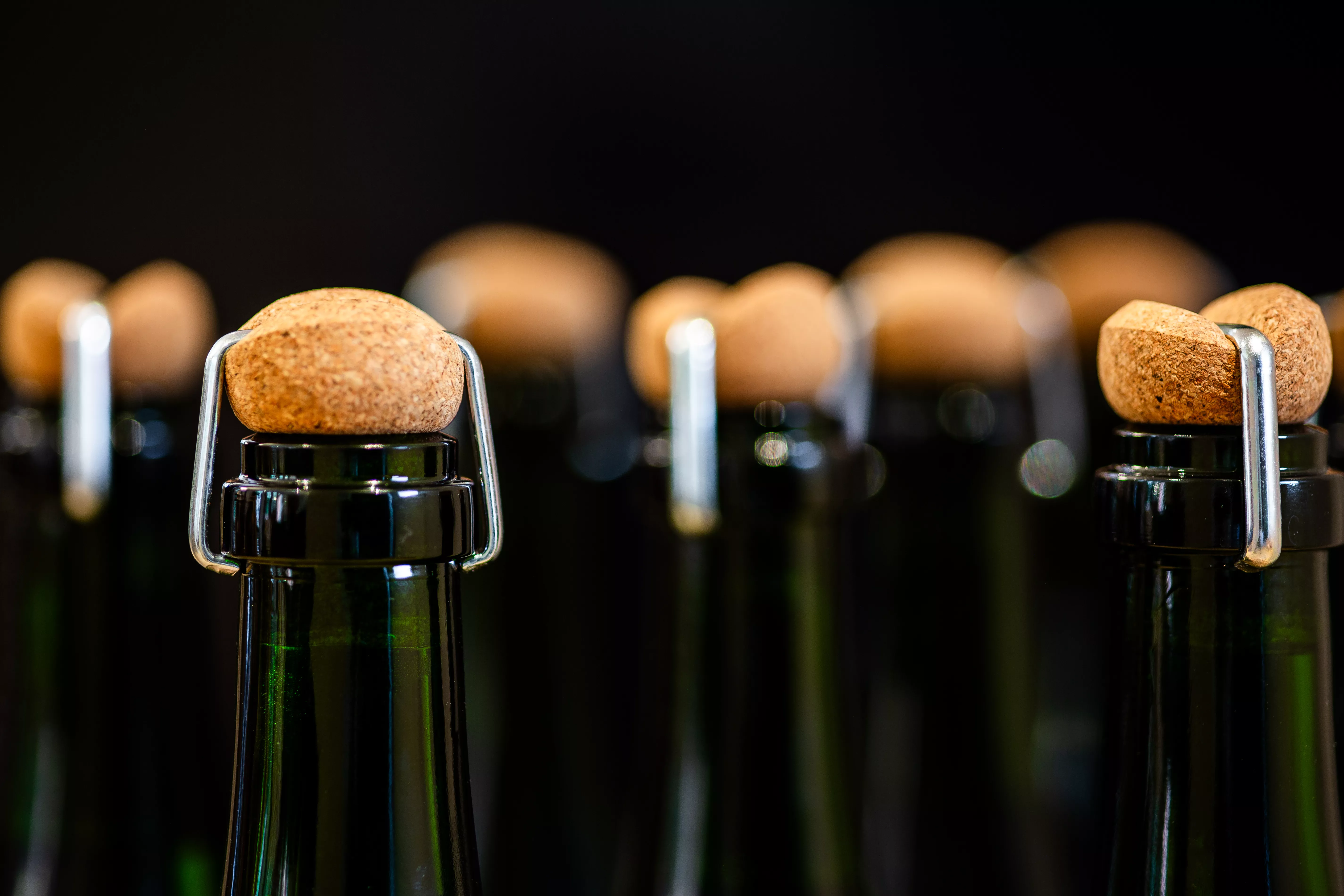
The Mytik Diam guarantee: neutrality and homogeneity.
Over the past few years, more and more Champagne growers have been returning to corking for sparkling wine: an ancestral practice long abandoned in favor of the metal cap, which is organoleptically more neutral.
The Mytik Diam corking solution provides winemakers with unrivalled sensory neutrality, with no risk of cork taint, as well as mechanical homogeneity that avoids any bursting of washers or pegging after bottling.
But the main advantage of these technological corks is their ability to select and manage gas exchanges according to the wine being made and the winemaker's expectations.
"Studies carried out by the CIVC show that oxygen intake is higher during the first months of bottling, due to desorption of the cork (OIR*). Oxygen transfer then stabilizes (OTR*), offering a slower evolution over time than with metal capsules. With Mytik Diam, our customers can be sure of keeping their bottles on lees for many years - up to 30 years, depending on the storage temperature! - without the risk of sensory deviation or unwanted oxidation. Alain Schmitt, Regional Manager Eastern France and Champagne, Diam Bouchage
Technology at the service of an ancestral tradition: mastering gas exchange.
According to numerous testimonials, tirage-liège brings elegance, complexity and finesse to wines. This is directly linked to the oxygen supply provided by cork stoppers.
Diam Bouchage, which has always been deeply involved in research into oxygen intake for the development of bottled wines, offers corking solutions with differentiated and homogeneous permeabilities from one bottle to the next. This gives winegrowers a real oenological choice.
The French corkmaker now completes its range with two MD5Ti and MD10Ti draw-off corks. Offering the same guarantees as the brand's other corks, the Mytik Diam Tirage have the particularity of being shorter for correct staple positioning and easier disgorging.
With varying degrees of oxygenation, these two corks enable the sparkling wine to mature slowly and evenly, under perfectly controlled conditions.
The Diam Bouchage company:
With the utmost respect for winemaking know-how, Diam Bouchage creates technological corks made from natural cork, which for over 20 years have revolutionized the bottle ageing and storage of still and sparkling wines.
The reliability of the DIAMANT® process, which ensures total cork cleaning** using supercritical CO2 at differentiated pressure, is unique and still unrivalled. Its flawless efficiency has been demonstrated and constantly optimized since the early 2000s, with nearly 2 billion corks sold every year.
Diam Bouchage has made technological choices that enable winemakers to take a personalized approach to managing their bottle ageing times and oxygen transfers, while guaranteeing perfect homogeneity from one bottle to the next. A new tradition that makes corking more than just a technical gesture, but a genuine oenological act.
Diam Bouchage's history, experience and know-how position the company as the trusted benchmark in the natural cork technology market. In this way, Diam reaffirms what it has always been: the authentic guardian of aromas.
"We are proud, in our own way, to promote the expertise of winegrowers and to contribute to the pleasure of their customers by inventing this new tradition that we hold so dear. A lasting balance between understanding the past and meeting the challenges of the future, between innovation and tradition, always with the utmost respect for nature and mankind." Dominique Tourneix, General Manager, Diam Bouchage
Diam Bouchage has historically been based in Cumières en Champagne, because it's in the day-to-day work and close contact with winegrowers that quality service is recognized. The figures also bear witness to the fact that, to date, 1 in 3 bottles of Champagne is corked by Mytik Diam.
*Oxygen Initial Release / Oxygen Transfer Rate. For further technical information: http://pict.oeno.tm.fr/documents/16501/2869401/x_TAP_web_Chevalier_170_Partie1-3_Impact-de-lobturateur-sur-le-vieillis_Fr.pdf
**TCA ≤ 0.3 ng/l limit of quantification


